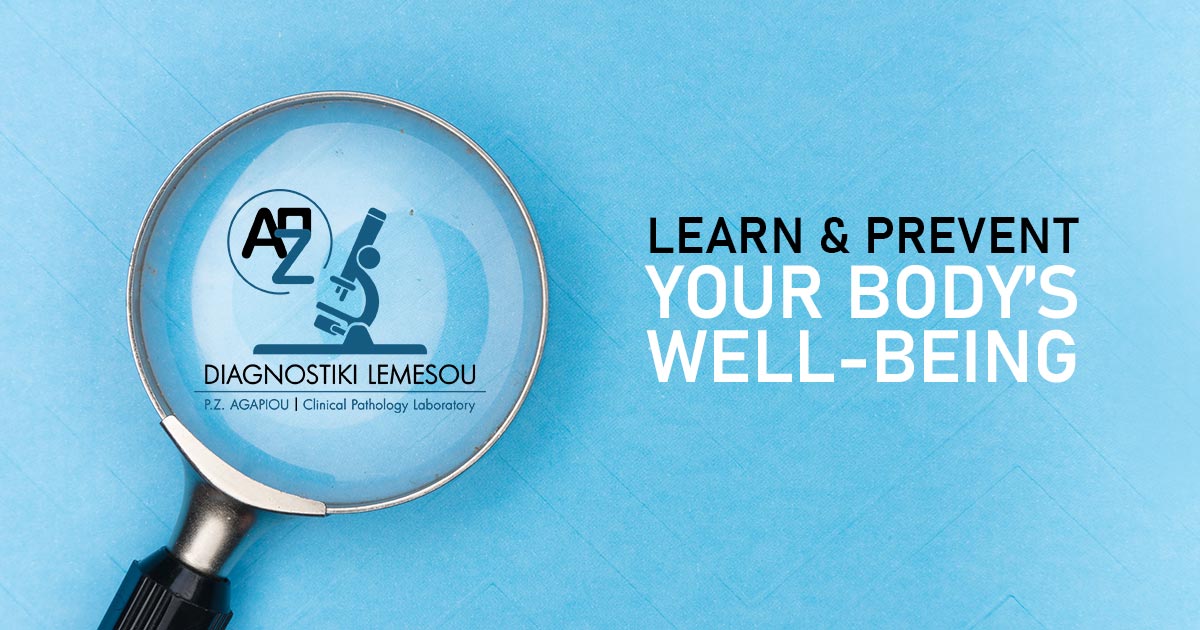
Cholesterol (Lipid) Panel
Overview
A complete cholesterol test is also called a lipid panel or lipid profile. Your doctor can use it to measure the amount of “good” and “bad” cholesterol and triglycerides, a type of fat, in your blood.
Cholesterol is a soft, waxy fat that your body needs to function properly. However, too much cholesterol can lead to:
- Heart disease
- Stroke
- Atherosclerosis, a clogging or hardening of your arteries
If you’re a man, you should get your cholesterol levels checked regularly, starting by age 35 or younger. If you’re a woman, you should begin routine cholesterol screening by age 45 or younger. To be on the safe side, you may want to get your cholesterol tested every five years beginning as early as age 20. If you’ve been diagnosed with diabetes, heart disease, stroke, or high blood pressure, or if you’re taking medication to control your cholesterol levels, you should check your cholesterol every year.
Who Is at Risk of High Cholesterol?
Cholesterol testing is very important if you:
- Have a family history of high cholesterol or heart disease
- Are overweight or obese
- Drink alcohol frequently
- Smoke cigarettes
- Lead an inactive lifestyle
- Have diabetes, kidney disease, polycystic ovary syndrome, or an underactive thyroid gland
All of these things can increase your risk of developing high cholesterol.
What Does a Cholesterol Test Measure?
A complete cholesterol test measures four types of lipids, or fats, in your blood:
- Total cholesterol: This is the total amount of cholesterol in your blood.
- Low-density lipoprotein (LDL) cholesterol: This is referred to as “bad” cholesterol. Too much of it raises your risk of heart attack, stroke, and atherosclerosis.
- High-density lipoprotein (HDL) cholesterol: This is referred to as “good” cholesterol because it helps remove LDL cholesterol from your blood.
- Triglycerides: When you eat, your body converts the calories it doesn’t need into triglycerides, which are stored in your fat cells. People who are overweight, diabetic, eat too many sweets, or drink too much alcohol can have high triglyceride levels.

Preparation for a Cholesterol Test
In some cases, your doctor may ask you to fast before having your cholesterol levels tested. If you’re only getting your HDL and total cholesterol levels checked, you may be able to eat beforehand. However, if you’re having a complete lipid profile done, you should avoid eating or drinking anything other than water for nine to 12 hours before your test.
Before your test, you should also tell your doctor about:
- Any symptoms or health problems you’re experiencing
- Your family history of heart health
- All medications and supplements that you’re currently taking
If you’re taking medications that could increase your cholesterol levels, such as birth control pills, your doctor may ask you to stop taking them a few days before your test.
How Is a Cholesterol Test Performed?
To check your cholesterol levels, your doctor will need to get a sample of your blood. You will probably have your blood drawn in the morning, sometimes after fasting since the night before.
A blood test is an outpatient procedure. It takes only a few minutes and is relatively painless. It’s usually performed at a diagnostic lab.
There are very few risks associated with having your blood drawn for a cholesterol test. You may feel slightly faint or have some soreness or pain at the site where your blood was drawn. There’s also a very slight risk of infection at the puncture site.
Next Steps and Treatment
High cholesterol can be treated with lifestyle changes and medication. Lowering high levels of LDL in your blood can help you avoid problems with your heart and blood vessels.
To help lower your cholesterol levels:
- Quit smoking tobacco and limit your alcohol consumption.
- Avoid high-fat and high-sodium foods, while maintaining a well-balanced diet. Eat a wide variety of vegetables, fruits, whole-grain products, low-fat dairy products, and lean sources of protein.
- Exercise regularly. Try to do 150 minutes of moderate intensity aerobic activity per week, as well as two sessions of muscle strengthening activities.
Your doctor may put you on a “therapeutic lifestyle changes” or TLC diet. Under this meal plan, only 7 percent of your daily calories should come from saturated fat. It also requires you to get less than 200 mg of cholesterol from your food each day.
Some foods help your digestive tract absorb less cholesterol. For example, your doctor may encourage you to eat more:
- Oats, barley, and other whole grains.
- Fruits such as apples, pears, bananas, and oranges.
- Vegetables such as eggplant and okra.
- Beans and legumes, such as kidney beans, chickpeas, and lentils.
Obesity is also a common risk factor for high cholesterol and heart disease. Your doctor may encourage you to lose weight by cutting calories from your diet and exercising more.
Taking medications such as statins can also help keep your cholesterol in check. These medications help lower your LDL levels.
Original source
https://www.healthline.com/health/cholesterol-test#next-steps-and-treatment
References
High blood cholesterol. (2014, June 11)
ncbi.nlm.nih.gov/pubmedhealth/PMH0063067/
How is high blood cholesterol treated? (2014, November 17)
nhlbi.nih.gov/health/health-topics/topics/hbc/treatment
Martin, S. S., Blaha, M. J., Elshazly, M. B., Brinton, E. A., Toth, P. P., … Jones, S. R. (2013, August). Friedewald-estimated versus directly measured low-density lipoprotein cholesterol and treatment implications. Journal of the American College of Cardiology, 62(8), 732-739
content.onlinejacc.org/article.aspx?articleid=1671271
Mayo Clinic Staff. (2016, January 12). Cholesterol test
mayoclinic.org/tests-procedures/cholesterol-test/details/what-you-can-expect/rec-20169541http://www.mayoclinic.org/diseases-conditions/high-blood-cholesterol/basics/tests-diagnosis/con-20020865
Mayo Clinic Staff. (2016, February 9). High cholesterol: Diagnosis
mayoclinic.org/diseases-conditions/high-blood-cholesterol/diagnosis-treatment/diagnosis/dxc-20181913
